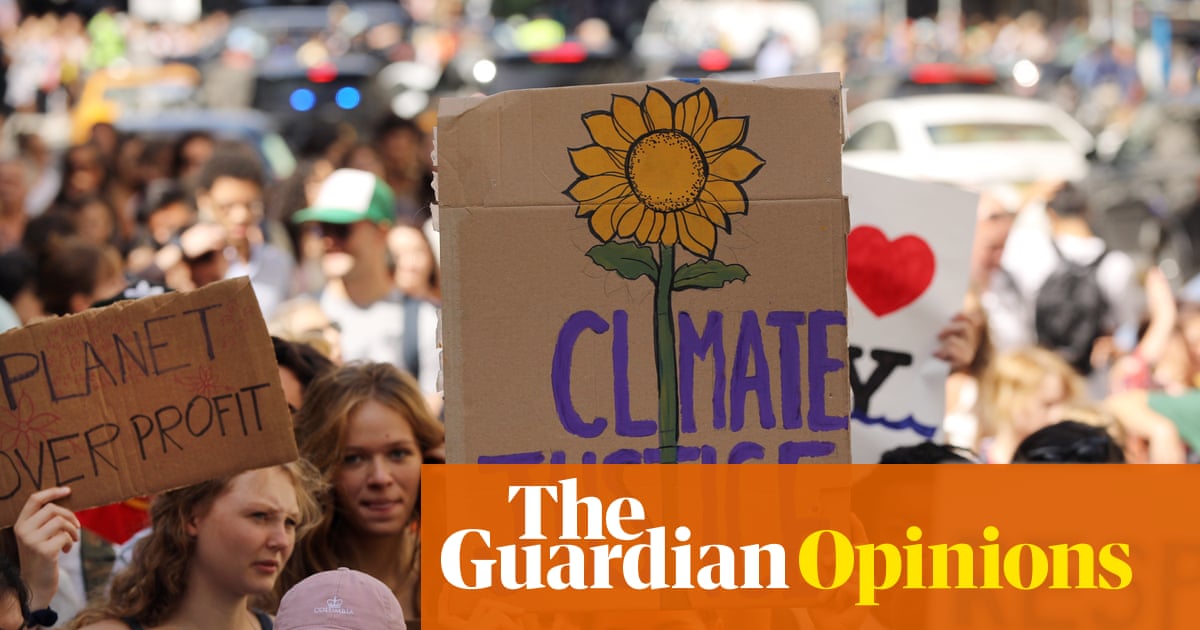PROTECT YOUR DNA WITH QUANTUM TECHNOLOGY
Orgo-Life the new way to the future Advertising by AdpathwayThe Coalition’s internal struggle over climate change will be on full display on Monday as the House of Representatives prepares to debate Barnaby Joyce’s private bill to dump Australia’s net zero target.
Over the weekend, the Queensland Liberal National party convention voted to abandon Australia’s net zero targets, adding to the growing list of Liberal state divisions opposed to the emissions reduction policy, including South Australia and Western Australia.
The state divisions’ motions do not bind the federal party room but will ignite ideological tensions within the Coalition as it undertakes a review of its internally contested energy and emissions reduction policies.
The tussles are expected to play out in public on Monday, with Joyce’s bill to ditch the 2050 net zero target up for debate in the lower house to open the sitting fortnight.
On Sunday, the shadow treasurer, Ted O’Brien, would not reveal whether he backed his state division’s motion on the weekend but said he wasn’t surprised by the outcome, noting it passed “very strongly”.
The Nationals leader, David Littleproud, remained defiant in taking the Coalition’s nuclear energy proposal to the next federal election.
“I think what we can do is obviously learn from the last election and not necessarily go down and model where the Australian taxpayer owns the nuclear power plants, but in fact just open up the market by lifting the moratorium and having them where existing coal-fired power stations are,” Littleproud told Weekend Today on Sunday.
“I think that’s a sensible solution to say, let’s put everything on the table.”
At the centre of the opposition’s climate and energy policy review is the future of its commitment to net zero targets.
While the former Morrison government brokered a deal with its junior Coalition party, then led by Joyce, in 2021 to support net zero by 2050, a growing number of Coalition members have been agitating for it to be dumped.
The shadow home affairs minister, Andrew Hastie, described the net zero economy as a “moral hypocrisy” and a “scam” in a newsletter titled “Net zero is not the answer” to his supporters on Friday evening.
“Australia has gone from an energy abundance to an energy famine in two decades,” he said.
“Why? Because we are chasing fantasy climate targets, and lining the pockets of an aggressive green energy lobby with our hard-earned money.”
Earlier this month, Guardian Australia reported Liberal MPs had been sent a barrage of emails demanding they drop net zero targets or “risk losing our support” by a political campaigning group connected to conservative rightwing lobby group Advance.
Liberal senator for South Australia Andrew McLachlan, a vocal supporter of net zero and climate action, said it was “not a ‘weakness’ to support targets to reduce pollution” at the time.
after newsletter promotion
Joyce is joined by Nationals colleagues, Matt Canavan and Michael McCormack, in his opposition to net zero targets. He told Guardian Australia in August any long-term emissions reduction from renewables would not make a meaningful difference to the climate and would cost households too much.
Under the Albanese government, Australia has legislated a 2030 target to reduce emissions by 43% compared with 2005 levels. A 2035 target is expected to be announced in September ahead of the UN climate change conference, or Cop30, in November.
On Monday, the independent MP, Zali Steggall, will also introduce a private members’ bill to legislate independent national climate change risk assessments every five years and a fully funded adaptation plan to risks that arise from it.
A national climate risk assessment – which includes modelling of future climate damage, estimates of the number of people who could be killed by worsening heatwaves and a mapping tool that forecasts flooding risk in suburbs across the continent – has been handed to the government but remains unreleased.
“Australia’s approach to climate risks is piecemeal and left to the whims of whichever party is in power,” Steggall said.
“While we wait for the government to release its ‘one-off’ National Climate Risk Assessment, this bill ensures future climate risks assessments are independent of government and released in a timely and transparent manner.”


 5 hours ago
6
5 hours ago
6





















 English (US) ·
English (US) ·  French (CA) ·
French (CA) ·